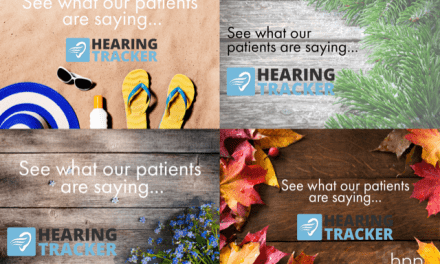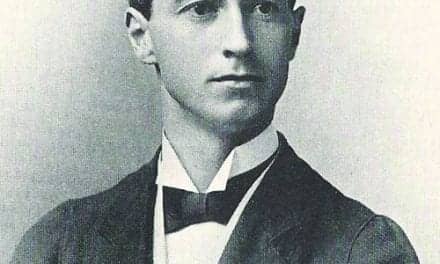
|
Auditory information and its contribution to our well-being and quality of life isn’t all about speech and communication. It extends far beyond the spoken word, and in the never-ending quest for optimized word recognition scores and hearing aid performance in ever-declining signal-to-noise ratios, we in the hearing industry often forget this fact.
Vishakha Rawool, PhD, recently wrote an interesting two-part article in the October and November 2007 editions of HR about why many people in the Deaf community—individuals who have no usable hearing and who communicate solely through sign language—are opting for cochlear implants. One of Dr Rawool’s points is that humans depend on sound for much more than simply talking with one another. Although she was writing about the benefits related to cochlear implants, I believe the same holds true for hearing aids and their “non-verbal” benefits.
For example, this morning, as I was driving my little boy to his daycare, I heard how cold it was before I even ventured outside the car. It was well below zero—cold enough so that the snow makes a different sound under the tires, a kind of pained squeaking rather than the more familiar low-pitched crunching. It’s the sound of miserable, even dangerous, cold. This might strike you as a tiny thing, but these little redundancies in our senses can add up to big things; I already knew it was cold outside because the newspaper and radio warned me, but the direct auditory information made it very clear that we needed to bundle up and keep the car in the garage so it would start!
Dr Rawool also points out that these types of additive sensations, or soundscapes, make our lives more vibrant. Think of ice clinking in your beverage-of-choice on a hot summer day, birds singing on your favorite walking route, or the breaking waves you hear while sitting on the beach. There are good reasons why sound engineers are awarded Oscars; access to soundscapes enriches our perceptions and places us fully within our world.
Mounting scientific evidence suggests that our world, in fact, is defined by our multisensory cues. As one example, a recent study by neuroscientists from Northwestern University suggests that what we hear can even fundamentally change our visual experience relative to assessing people’s gender when looking at their faces (see the November 1, 2007 HR Insider).
Auditory messages also allow us to multitask without fear. For example, I can gather clothes in our downstairs laundry room for short periods while monitoring my kids. Did my boy leave the water running after using the bathroom? Is the baby awake yet? Was that last loud thump accompanied by a wailful cry or more footsteps? Where is he and what toy makes that sound? Is it too quiet? These are the kinds of acoustic signals—and there are thousands of them—that make your life a lot less fearful while making you a lot more productive.
A couple of other notable, but infrequently cited benefits of hearing aids (categories borrowed from Dr Rawool’s article on CI benefits) might also include the ability to hear fire alarms and alerting devices, traffic and other potential bodily threats, telephones and doorbells, as well as access to, or enhancement of, music appreciation. Reduction of tinnitus is another benefit for some hearing aid users. Apart from the notable benefits of tinnitus masking, one study (Mo et al, 2002) published in the International Journal of Audiology showed that about a quarter (23%) of people with tinnitus who use hearing aids experience a reduction in their symptoms.
For those of you who remember the mid-1990s and the hearing industry’s travails with FDA Commissioner David Kessler, it seems absurd that we were then locked in a debate about whether it was OK for hearing aid manufacturers to claim their products improved quality of life. Although it should be acknowledged that the FDA’s objection was mainly with claims related to hearing in noise (a legitimate beef at that time), what should not be debatable is that hearing aids provide access to a wide range of acoustic phenomena—including speech—that supplies crucial information about the world around us.
Karl Strom
Editor-In-Chief





